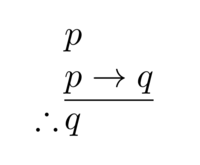
Photo from wikipedia
Abstract The paper argues that the way we realise or define argumentation in a research project aiming at promoting the practice in primary science education should not be considered as… Click to show full abstract
Abstract The paper argues that the way we realise or define argumentation in a research project aiming at promoting the practice in primary science education should not be considered as something static and pre-given but may change during the various phases of the project, based on stakeholders' motives and needs. This claim is supported through the findings of a two-year empirical study that took place in Cyprus, which illustrate in detail the transformations that the definition and meaning of argumentation in primary science education went through. Activity theory is used as a theoretical, methodological and analytical framework. Specifically, the paper mainly draws on the notion of the object of the activity, used as a conceptual heuristic, and on the notions of the springboard and the microcosm from expansive learning theory, used as methodological and analytical tools, in order to trace the various definitions and meanings attributed to argumentation by stakeholders. Implications for research and the assessment of teachers are also presented.
Journal Title: Learning, Culture and Social Interaction
Year Published: 2017
Link to full text (if available)
Share on Social Media: Sign Up to like & get
recommendations!